How to clean a shower curtain and get it looking like new
Here’s how to clean a shower curtain and liner to get rid of mold
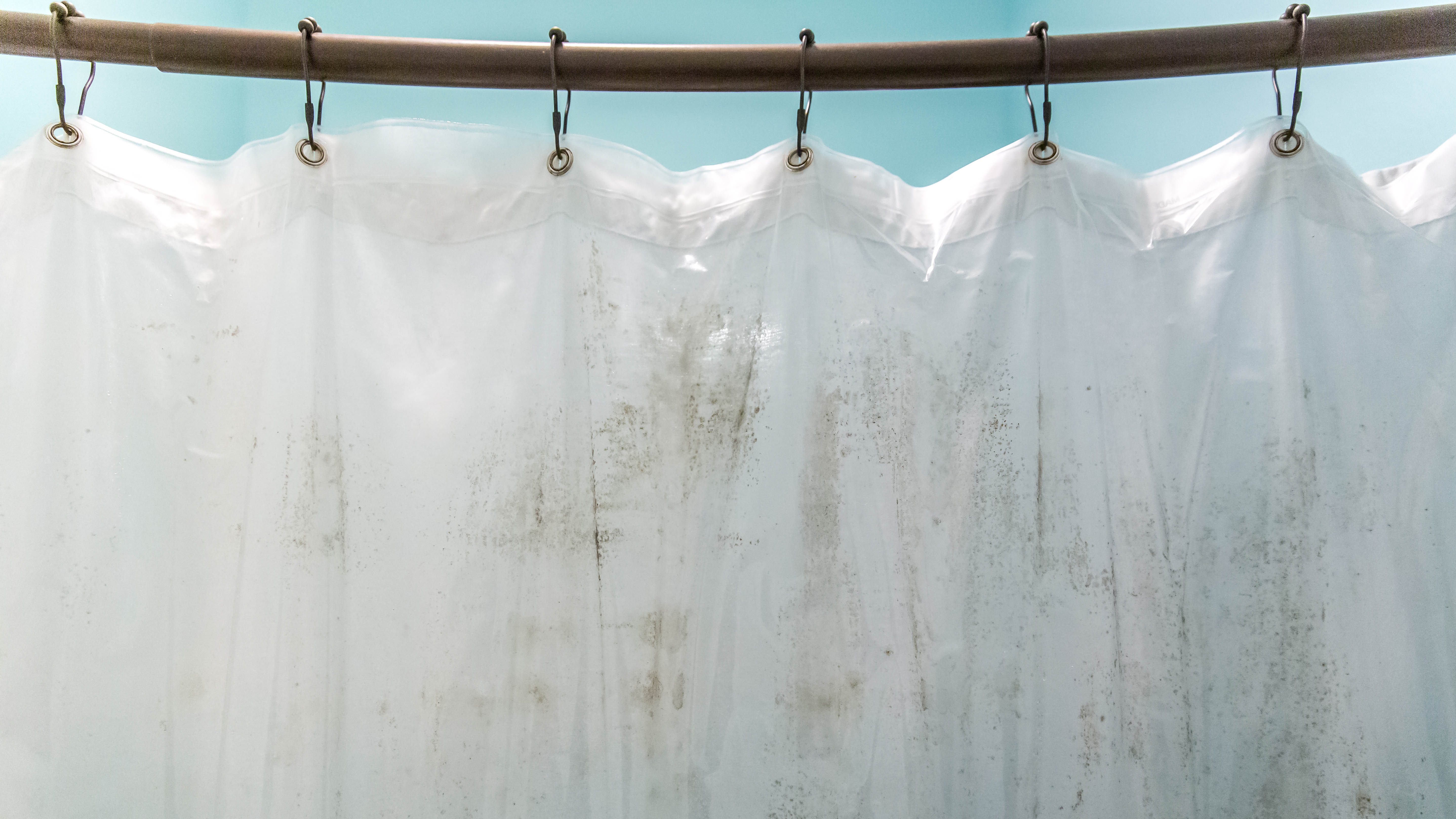
Knowing how to clean a shower curtain can save you the hassle and expense of buying a new one — not to mention it’s the more sustainable thing to do. With regular use, stains can quickly develop on shower curtains and liners, resulting in black and orange discoloration and an unpleasant smell.
These stains form because the shower curtain is being regularly exposed to soap scum as well as a damp and humid atmosphere, which can lead to mold, mildew and even limescale. The good news is you don’t need to throw it out in the trash just because it’s made of plastic. It is indeed possible to clean a shower curtain; in fact it might be less effort than having to remove limescale from a glass shower door. Here, we take you through what to do step-by-step. Here’s how to clean a shower curtain.
Ever wondered whether you should shower in the morning or at night? Here’s what the experts say.
How to clean a shower curtain if it’s machine-washable
Towels
Laundry detergent
Baking soda
White distilled vinegar (optional)
Bleach (optional)
Microfiber cloth
1. Load your washer — Remove the shower curtain and liner from the hooks and place in your empty washing machine. (Need a new one? Check out our picks for the best washing machines.) You'll also want to make sure no one needs to use the shower for the next few hours before you do this.
2. Bulk the load — Add a couple of towels to the load to even out the weight — this will prevent your washing machine from shaking. The abrasiveness of the extra towels will also help with the stain removal.
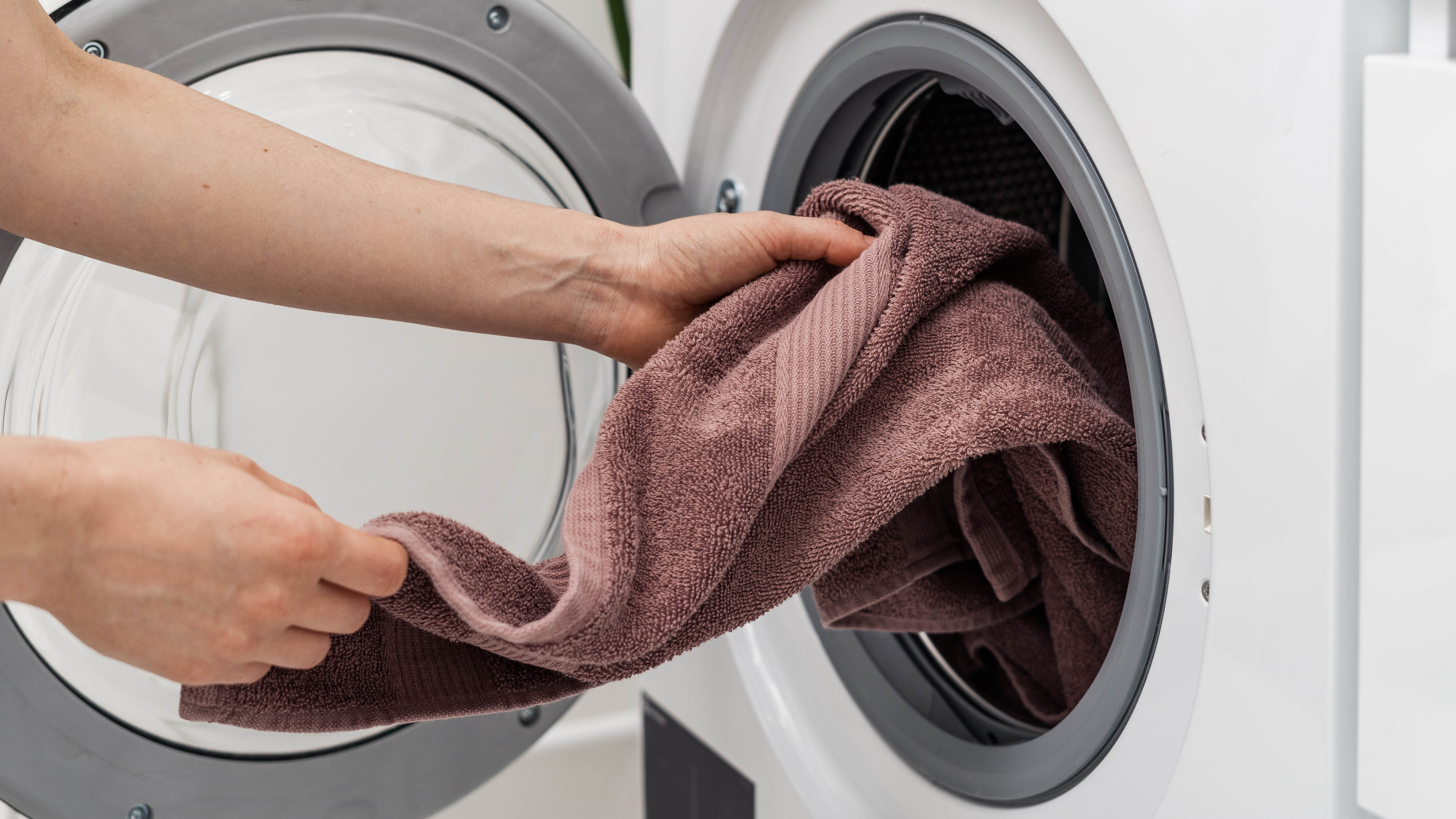
3. Add your usual detergent — Biological detergent is the best if you’re dealing with heavy-set stains, along with ½ a cup of baking soda. You can also add ¼ cup of white distilled vinegar to the rinse cycle for more cleaning power. (Here's why baking soda and vinegar are so effective at cleaning.)
If you’re dealing with a lot of mold, you can alternatively add ½ a cup of bleach and reduce your detergent to about ¼ cup. Bleach is very effective on mold, but your curtains will either need to be white or transparent to avoid damage.
Sign up to get the BEST of Tom's Guide direct to your inbox.
Get instant access to breaking news, the hottest reviews, great deals and helpful tips.
4. Wash your shower curtain — Run on a gentle cycle using the highest temperature allowed by the care label (this will likely be cool if you're washing plastic, and hot if you're washing a fabric shower curtain).
There’s no need to spin at the end if you’re washing a plastic shower curtain, as it won’t retain water, although you will want to spin the towels separately.
If your shower curtain is made from a soft fabric, such as cotton, follow the care label for the recommended spin cycle.
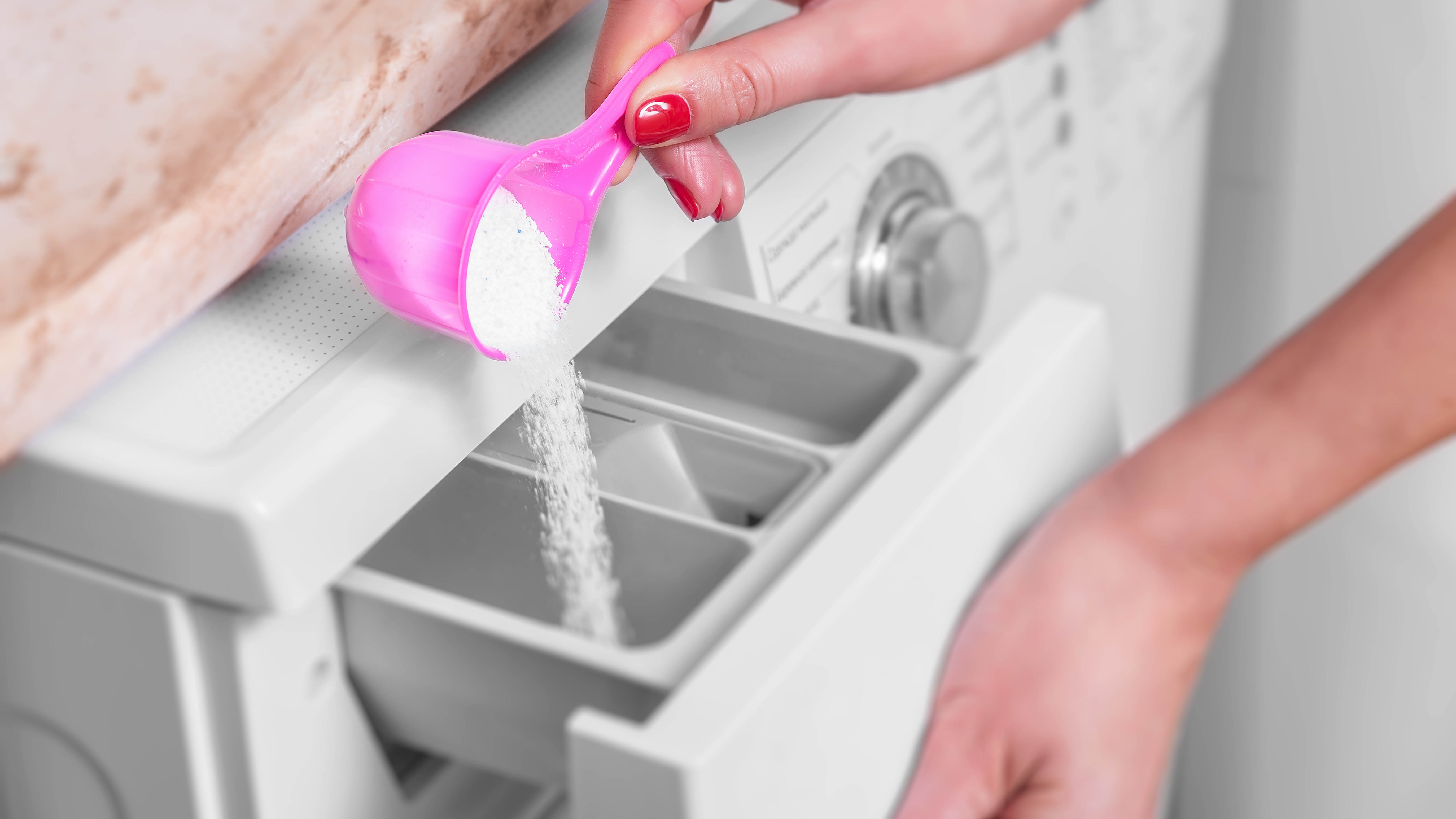
5. Dry your shower curtain — Shake out your shower curtain and liner and re-hang to dry. Remember to leave it drying in a spread out, open position. If you’re washing a fabric shower curtain, you may be able to tumble dry it to speed up the process; check the care label for guidance.
How to clean a shower curtain by hand
1. Use a damp microfiber cloth — If you’re dealing with light stains, you should be able to remove them with a damp microfiber cloth, sprinkled with some baking soda.
2. Start scrubbing — Scrub at the stains to gradually remove them and then rinse the shower curtain with a damp microfiber cloth.
3. Repeat and dry — Repeat if necessary and leave hanging to dry, or tumble dry if the care label allows.
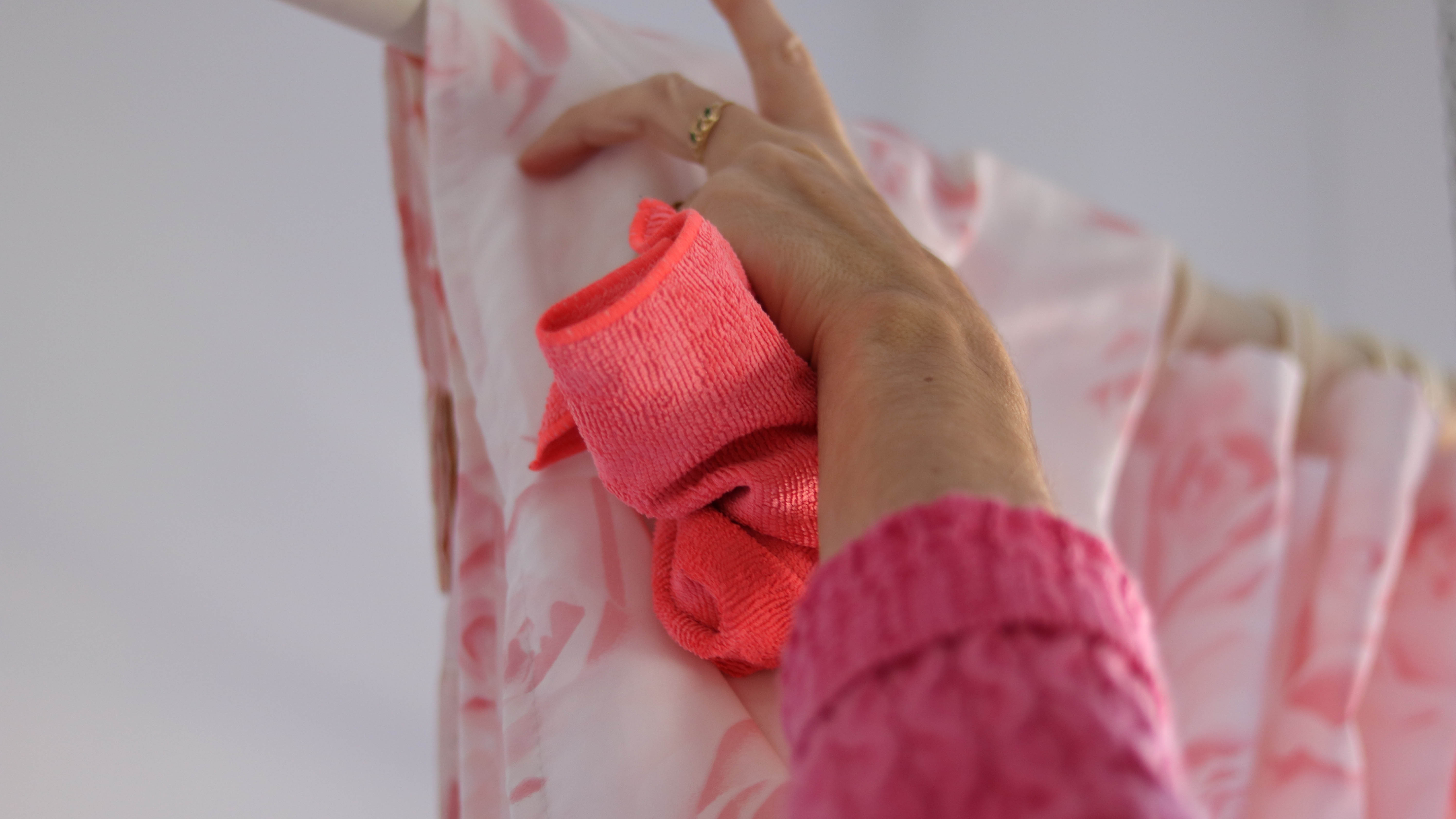
If you’re dealing with particularly stubborn stains, you can also hand wash the shower curtain in a bathtub filled with warm water, ¼ cup baking soda and a few drops of detergent. Scrub with a microfiber cloth and then rinse and hang to dry. If you use this method on a fabric shower curtain, be sure to squeeze out as much of the excess water as possible before you dry.
And that’s it: Your shower curtain should look as clean as the day you bought it. Remember, that stains can always be removed — you shouldn’t need to buy a new shower curtain unless it gets damaged.
How to clean shower curtain rings
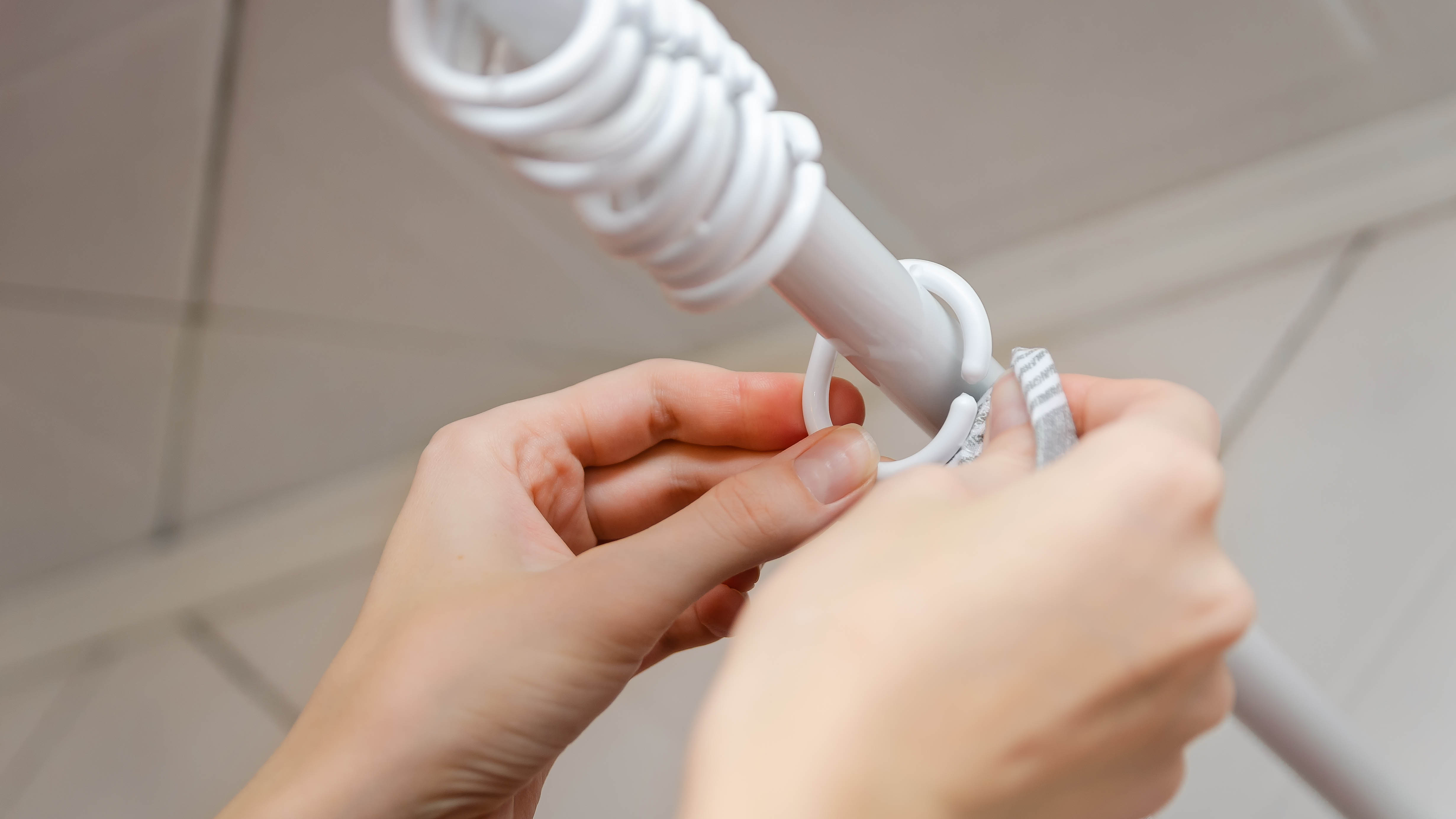
As your shower curtain is out of action, why not take the time to give the rings a clean? Humidity can cause stains to show up on these too.
Fill your sink with warm water and add one cup of white distilled vinegar. Then take down the rings and let them sit in the solution while your curtain is being washed. Once time’s up, rinse and scrub the rings with a microfiber cloth and you’re done.
How often should I wash my shower curtain?
Ideally, you should be cleaning your plastic shower curtain or liner every 1-2 months, although this varies depending on the traffic in your bathroom and how well it is aerated. Fabric shower curtains will need to be cleaned less regularly. If you spot stains or it starts to smell, then it needs a clean.
How can I prevent a moldy shower curtain?
- Leave your bathroom to air after each shower by opening the doors and windows.
- You should also spread the shower curtain across the rail to help it dry rather than leaving it bunched up.
- One of the best dehumidifiers can also help keep moisture levels low in your bathroom.
- If you want to prevent mildew, you can also spray your plastic shower curtain with a solution of white distilled vinegar and water on a daily basis.
Looking for more bathroom cleaning tips? Check out our guide on how to clean a glass shower door, as well as how to unclog a shower drain, and how to unclog a blocked toilet. We also have 15 water saving tips to lower your bill.
Your bathroom isn't the only room in your house; here's how to clean every room of your home.

Katie Mortram used to be a Homes Editor for Tom's Guide, where she oversaw everything from kitchen appliances to gardening tools, as well as smart home tech. Specializing in providing expert advice for cleaning and home manintenance, she now works as Household Advice Editor for Good Housekeeping.
